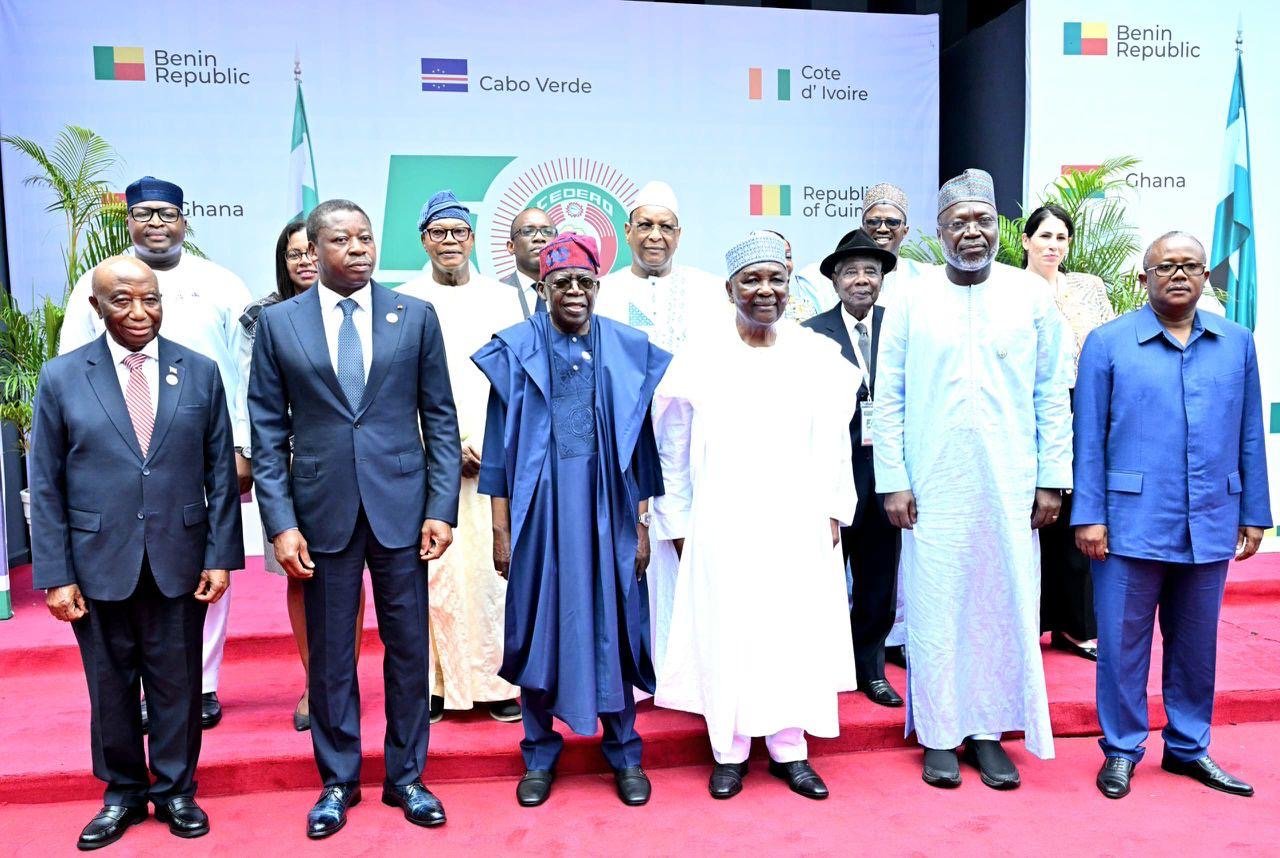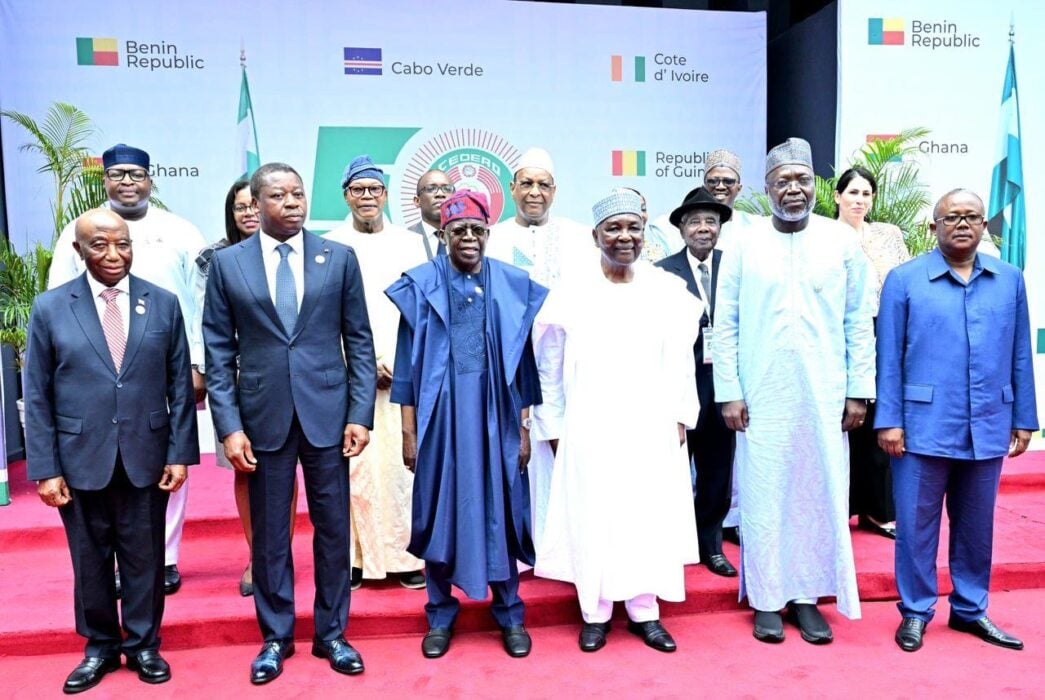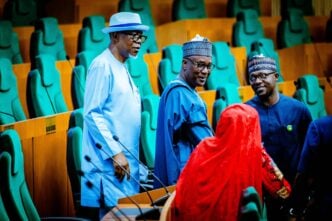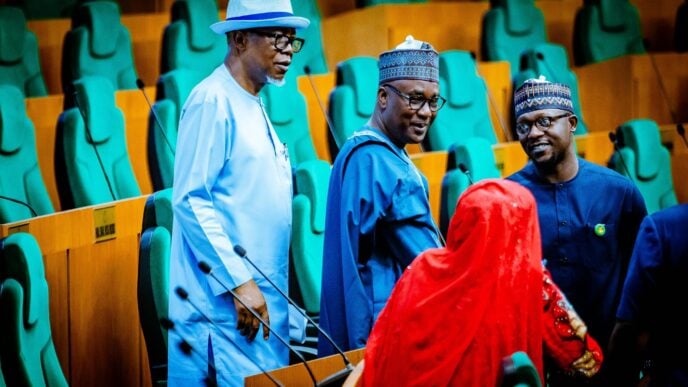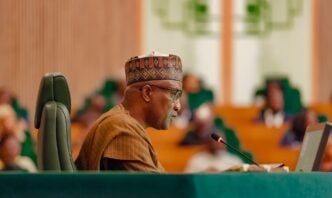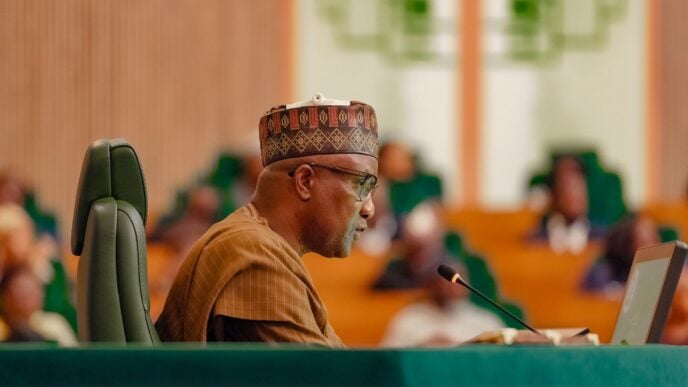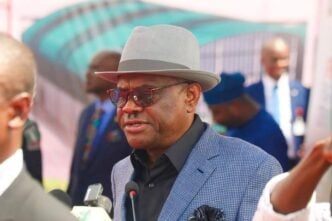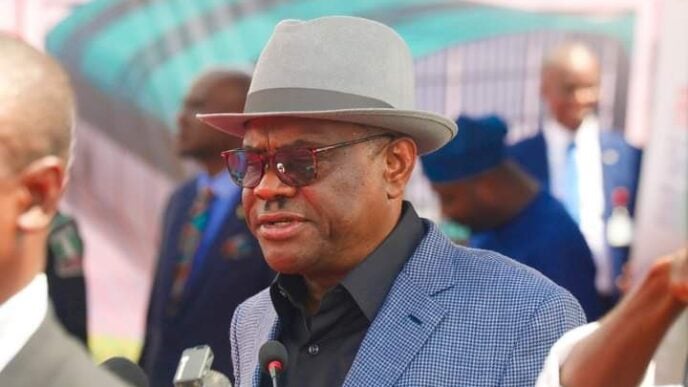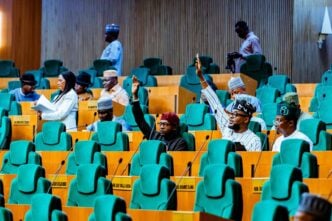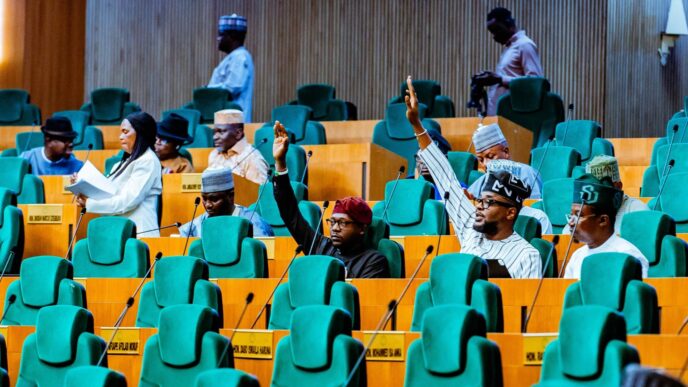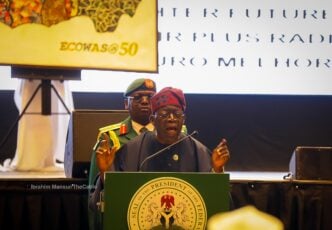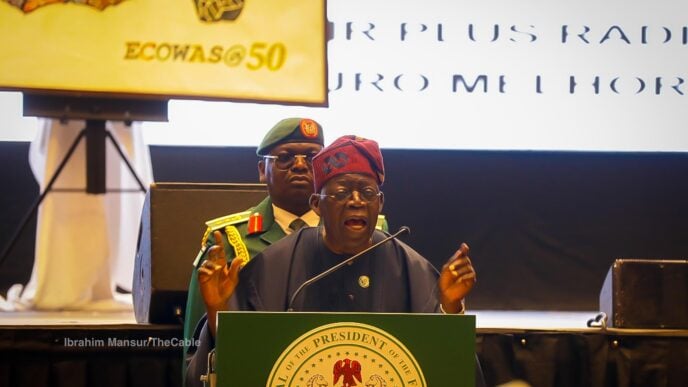L-R: Joseph Nyuma Boakai, Liberian president; Jean-Lucien Savi de Tové, president of Togo; President Bola Ahmed Tinubu; Yakubu Gowon, former head of state; Umar Alieu Touray,
president of the ECOWAS Commission; Umaro Sissoco Emalo, president of the Republic of Guinea Bissau; and other leaders during the ECOWAS golden jubilee in Lagos on Wednesday
The Economic Community of West African States (ECOWAS) says member countries must deepen its cooperation to overcome the challenges facing the region.
Omar Touray, president of the ECOWAS Commission, made the call on Wednesday during the organisation’s 50th anniversary celebration in Lagos.
The event, themed ‘Stronger Together, For a Brighter Future’, brought together heads of states, and dignitaries from across the region.
Touray highlighted the current global context impacting the region, including violence, extremism, terrorism, geopolitical rivalry, economic uncertainty, and rising living costs.
Advertisement
“As we mark the golden jubilee, let us be reminded of the current international context which impacts on our community namely the persistence of violence, extremism and terrorism, the emergence of geopolitical competition and rivalry, the mounting economic difficulties as a result of the uncertainties in the global political and economic order, and the increasing cost of living across the globe,” the ECOWAS president said.
“These challenges remind us of the need to go even closer, strengthen our unity and cooperate as a region.”
He stressed that with solidarity and collective self-reliance, the region can overcome major challenges such as terrorism, climate change, unconstitutional changes of government, poverty, and economic disparity.
Advertisement
“With our strong collective will, I have no doubt that we shall overcome these challenges. As I have often said, our strength lies in our unity, in our shared identity and in the spirit of solidarity that divides our unity,” Touray added.
Highlighting its achievements over the last five decades, the president said the ECOWAS project was built on the shared vision of cooperation, integration, and progress.
According to Touray, the community has made notable progress in facilitating free movement of citizens, boosting intra-regional trade, and developing critical infrastructure.
He noted that ECOWAS has eased trade with international partners and has also created a regional electricity market to improve energy access for households and businesses.
Advertisement
Touray also noted the role of the ECOWAS Bank for Investment and Development (EBID), which has mobilised and committed $4.5 billion in investments across the region.
“We have stood together in the face of epidemics and pandemics, in security and natural disasters, offering humanitarian support and strengthening healthcare and food systems,” he said.
“We have invested in our most valuable resource, our people, by promoting gender equality, youth employment and human capital development. We have upheld democracy despite election observation missions and deployed our standby force in defence of peace, regional stability and democracy.
“From the days of ECOMOG, when ECOWAS successfully put an end to violent conflicts in the region, to this day of ours, we focus on promoting youth entrepreneurship and digital economy through support to startups and investments in infrastructure.
Advertisement
“We have demonstrated to the world that the African solution actually works.”
‘ECOWAS GIVES SPECIAL ATTENTION TO CONCERNS OF CITIZENS’
Advertisement
The ECOWAS president also emphasised the importance of citizens’ participation in shaping regional affairs, welcoming suggestions from civil society on improving governance, security, and economic integration.
“We have continued to create space for our citizens to participate in the integration process including the planned establishment of the Economic, Social and Cultural Council of West Africa, which will serve as a statutory advisory body of the ECOWAS decision maker in the near future,” he said.
Advertisement
“As a democratic state, the ECOWAS region gives special attention to the concerns of citizens and their aspirations.”
He noted that despite the withdrawal of Mali, Burkina Faso, and Niger from ECOWAS, there remains a shared understanding of the need to continue working together as part of the “West African family”.
Advertisement
